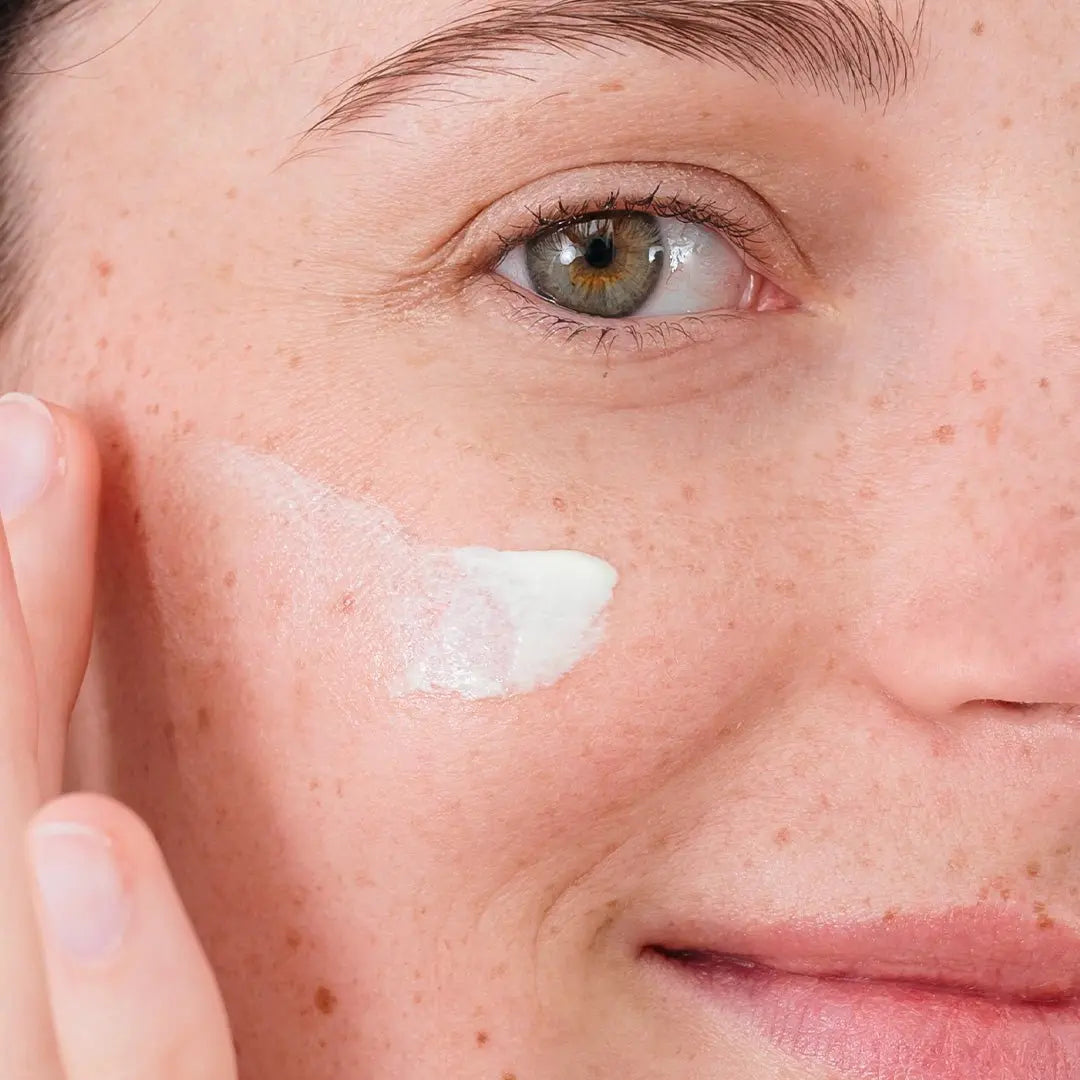Daylily Paris is a brand of clean, sensorial, and effective skincare products, made in France and 100% compatible with pregnancy and breastfeeding. We are also committed to sharing quality information for an informed and confident motherhood. 🧡
=== Adding product 1 ===
Postpartum Gift Set
=== Adding product 1 ===
The Washing Bubbles
=== Adding product 1 ===
- What sleep-related problem(s) do parents contact you about most often?
- How long does an infant sleep on average per day?
- How can I tell if my baby is sleeping enough?
- Do you have any techniques for getting baby to sleep quickly during bottle feedings or breastfeeding at night?
- Do you have any advice on how to choose between co-sleeping and separate bedrooms?
- How to create an effective sleep routine?
- If the baby cries, should we let him cry until he falls asleep?
- What to do if nighttime awakenings are too frequent?
- In what situation and at what point should you consult a professional?
- What does support at Fée Dodo entail?
What sleep-related problem(s) do parents contact you about most often?
Often, the parents who come to see us are in a state of exhaustion which can lead to breakups in the couple, mistreatment of the child or of oneself, postpartum depression or even parents who are on sick leave .
These parents feel completely helpless ; they come to us after consulting their doctor, pediatrician, midwife, daycare center, or even their childminder. They have had a very long journey, marked by a void and a lack of answers , often without support or even consideration. They are physically and psychologically exhausted.
The most frequent problem concerns restless children and/or babies who often wake up at night, who suffer from insomnia and who can stay awake for 1 to 3 hours before falling back asleep, which will impact the sleep and daily rhythm of the parents .
The second most common problem is "my child can't fall asleep alone." Parents will spend hours trying to get their children to sleep, trying several techniques (rocking, singing, cuddling, etc.), and very often, as soon as they put them in their bed, they wake up.
We are also frequently contacted about "my child refuses to nap," or " he only takes short 30-minute naps, takes a very long time to fall asleep, and his sleep is restless." It is important to emphasize that naps are essential for children up to the age of 4.
Finally, we are often called upon for children who wake up from naps or at night screaming, or for whom there is a lot of crying around sleep, whether before, during or upon waking.
How long does an infant sleep on average per day?
For a baby between 0 and 2 months old , the average sleep time is 17 to 18 hours per day.
Depending on the children, this range can be from 4pm to 8pm , divided into 8 to 10 hours during the day and 8 to 12 hours at night.
At Fée Dodo, we offer free resources for parents, such as our age-based articles, which you can find right here . You can also download our summary chart of sleep times according to your child's age.
How can I tell if my baby is sleeping enough?
The table mentioned above is a good tool for determining averages. However, observing the child can be very interesting. For example, if babies wake up screaming or crying during a nap, this could be an indicator of sleep deprivation.
The baby's overall condition should also be taken into account; a significant lack of sleep can lead to children being called "owl babies." They have great difficulty falling asleep at night or for naps, they have trouble letting go, and this is characterized by hypervigilance.
Here are some indicators that can help you identify if your child may be sleep-deprived:
- The baby: looks everywhere, curious about the world around him, asks a lot for "to be held" and starts to cry as soon as he is put down, or when the parents leave.
- For a child between 2 and 3 years old: rubs their eyes, yawns, cries a lot, cannot manage their frustration, is confronted with emotional storms.
- In an older child: at bedtime, they become extremely excited, running around everywhere, and are difficult to calm. Overtiredness and chronic lack of sleep cause this overexcitement. They are restless and constantly moving, they don't listen to the rules, and they have great difficulty concentrating on any activity.
Do you have any techniques for getting baby to sleep quickly during bottle feedings or breastfeeding at night?
No! Because the sleep cycle and sleep problems have nothing to do with techniques.
At Fée Dodo, we don't offer a method; it doesn't make sense. Every sleep problem is linked to a specific characteristic of the child : their age, weight, diet, 24-hour sleep pattern, sleep environment, etc. Overall, we have about a hundred criteria to check to understand what's going on.
Do you have any advice on how to choose between co-sleeping and separate bedrooms?
Yes, the one about listening to oneself.
Sleep is truly linked to parental values ; finding the right balance between desire and need is key. Today, 99% of sleep problems stem from a lack of information for parents.
The WHO recommends room sharing , but not bed sharing until 6 months to prevent Sudden Infant Death Syndrome (SIDS) .
However, there are no studies on the increase in the rate of hypervigilance and postpartum depression or insomnia of parents who sleep in the same room and are awakened by the noises of the baby.
The reality is that there is a lot of co-sleeping in “bed-sharing”, that is, sharing a bed, which is not at all recommended by the WHO because it exponentially increases the risks of Sudden Infant Death Syndrome.
Our role here will be to provide safety information about this, namely, we will advise against sleeping in a soft bed and recommend avoiding duvets and pillows. We recommend that the baby only sleep on the mother's side rather than between the parents, etc. There are a whole host of suggestions.
Therefore, the choice must be made based on your desires and parental values before the baby arrives, and on the reality of what you will experience with the baby upon its arrival.
At Fée Dodo, we tailor our responses to the parents' desires and experiences after the arrival of a child.
Practice co-sleeping if everyone finds their own sleep rhythm, otherwise separate the rooms for the well-being of the baby and that of the parents.
How to create an effective sleep routine?
Here is a typical ritual, by age, to be applied every day of the week , which usually works well depending on the development of the babies, but it is important to tell each family that they really need to repeat the same actions in the same way, regardless of who puts the child to bed and in the same order.
- As a typical bedtime ritual for babies (from 3 to 17 months) , we recommend starting with a bath half an hour before bedtime. Immersion in water is a truly key moment for the child, a sensation that will give them a sense of time.
Then, after the bath, have some skin-to-skin contact with a warm towel, hum a little song and put him in his pajamas.
Once in the room, with a subdued atmosphere, it's time to fill your emotional tank.
This is also the last feeding time before going to bed. Talking to him at the same time, with the aim of putting him to sleep and having an interaction, a special moment of unique sharing and connection with him.
Finally, it's time to sing the last song ; the baby is just waiting to be put down so he can sleep. The bedtime ritual lasts 20 to 30 minutes .
- For the ritual of older children (from 18 months) , offer a bath before the meal, around 5pm/5:30pm, then dinner around 6pm until 6:45pm .
Next comes a real time for connection and play until 7 p.m. We focus solely on our child, either all together or each child with a parent, but not in the bedroom; it's not a bedtime ritual. This is the time to replenish their emotional reserves, something older children particularly need to ease the transition to separation.
Then, starting at 7pm, you can begin the bedtime ritual: brushing teeth, washing face, etc…
Finally, around 7:10 pm , it's time to go to the room, read a story, drink the last bottle if needed, then go to bed, give each other a last kiss, a last hug, sing the little bedtime song and then say goodnight and see you tomorrow.
If the baby cries, should we let him cry until he falls asleep?
We do not approve of leaving a child to express their emotions alone in their room.
We encourage parents to listen to their child, who has the right to be unhappy or not want to sleep. Letting them cry alone is pointless, as is trying to suppress their emotions. On the contrary, it's important to help the baby or child accept and process their feelings.
We encourage parents to step out of this "sleep-inducing" role, which creates a form of intrusion into the child's sleep and their ability to fall asleep, not to mention the power dynamics that can arise from it.
If the child cries at bedtime, it is important to listen to them and support them with closeness, in the emotion they have to give, but without trying to stop the emotion or to put the child to sleep.
Once the emotion has passed, leave the child and reassure him/her of his/her ability to fall asleep alone.
If it was a baby who needed to release tension, he will have released it and falling asleep will be easier.
What to do if nighttime awakenings are too frequent?
If they are too frequent (outside of the feeding needs of very young children), we advise seeking professional help to understand the problem in order to resolve it.
In what situation and at what point should you consult a professional?
From the moment I understood from all the previous answers that there is a real sleep problem and after consulting experts such as the pediatrician or the doctor who follows the child to check that there is no pathological sleep disorder and possibly having consulted an ENT in parallel, for sleep apnea.
What does support at Fée Dodo entail?
We offer personalized support for parents of babies from 3 months old . With this service, you can relax and rely on the expertise of a consultant who will guide you and provide all the necessary information to understand the challenges of your child's sleep.
We always begin with a free assessment appointment to ensure we can support you. You will then receive a questionnaire of approximately one hundred questions to understand all the aspects of your specific challenges. A personalized sleep plan will then be presented to you during a video conference , marking the start of our support. We will then be with you every step of the way, through every victory, every doubt, every question. We will progress step by step until you have the tools to find peace and serenity on your own path.
Our video programs offer affordable access to information, and our one-off consultations allow you to connect with one of our Sleep Fairies to delve deeper into specific topics and resolve challenging situations. (Learn more at: https://www.feedodo.fr/nos-webinaires/ )
Fée Dodo's mission includes democratizing knowledge about sleep by providing nuanced information and offering parental support remotely with one of our Sleep Fairies. ( Learn more: https://www.feedodo.fr/consultations-ponctuelles-sommeil-bebe/ )
You can also download our summary table of sleep times according to your child's age.
We always start with a (free) assessment appointment to check that we can support you.















